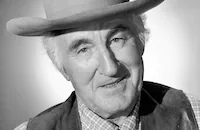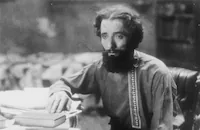Ramona
Brief Synopsis
Cast & Crew
Donald Crisp
Adda Gleason
Mabel Van Buren
Anna Lehr
Monroe Salisbury
N. De Brullier
Film Details
Technical Specs

Synopsis
During the nineteenth century, while white settlers in Southern California cruelly mistreat the Mission Indians, Alessandro, a full-blooded Indian, marries Ramona, who is half-Scot and half-Indian. Hounded by the prejudiced townspeople, the couple moves from community to community until one of the settlers murders Alessandro.

Director

Donald Crisp
Cast
Adda Gleason
Mabel Van Buren
Anna Lehr
Monroe Salisbury

N. De Brullier
Richard Sterling
Princess Red Wing
Lurline Lyons
Alice Morton Otten

James Needham
Mrs. H. Davenport
E. Valencia
H. M. Best
Arthur Tavares
Victor Vallejo
Beatrice Burnham
Mrs. Gordon
J. Wesley Warner
Chief Standing Bear
Inez Gomez
Rosa Dray
J. L. Franck
Hubert Whitehead
Crew

Film Details
Technical Specs

Quotes
Trivia
Notes
Many of the scenes were shot at authentic period locations in California. Ramona was released in varying lengths. The director, Donald Crisp, appearing in the film as Jim Farrar, chose the pseudonym "James Needham." The film had its premiere at Clune's Auditorium in Los Angeles on February 7, 1916. In the Los Angeles showings, and possibly at other cities, the presentation included two stage settings showing a mission where men and women received the blessings of one of the Padres, and an Indian campfire scene in a valley in the mountains. Neither scene contained dialogue. The film opened in New York on April 5, 1916. Ramona was the first film of the Clune Film Producing Co., formed by W. H. Clune after the success of The Birth of a Nation, which had its premiere in Clune's Auditorium, convinced Clune and his general manager Lloyd Brown that the demand for big productions had not been met by the supply of these films. For information on other versions of Ramona, for the 1936 Twentieth Century-Fox film directed by Henry King and starring Loretta Young.












